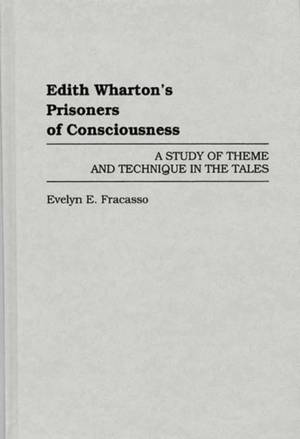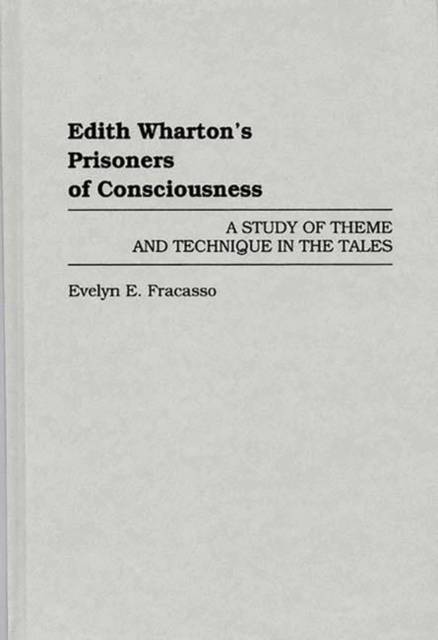
- Afhalen na 1 uur in een winkel met voorraad
- Gratis thuislevering in België vanaf € 30
- Ruim aanbod met 7 miljoen producten
- Afhalen na 1 uur in een winkel met voorraad
- Gratis thuislevering in België vanaf € 30
- Ruim aanbod met 7 miljoen producten
Zoeken
Edith Wharton's Prisoners of Consciousness
A Study of Theme and Technique in the Tales
Evelyn E Fracasso
€ 127,45
+ 254 punten
Omschrijving
The metaphor of life as prison obsessed Edith Wharton, and, consequently, the theme of imprisonment appears in most of her 86 short stories. In the last several decades, critical studies of Wharton's fiction have focused on this theme of imprisonment, but invariably it is related to biographical considerations. This study, however, is not concerned with such insights and influences; rather, it concentrates on Wharton's skill as a craftsman in consciously and carefully fitting her narrative techniques to the imprisonment theme. Representative tales from Wharton's early period (1891-1904), her major phase (1905-1919), and her later years (1926-1937) have been examined and divided into four categories: individuals trapped by love and marriage, men and women imprisoned by the dictates of society, human beings victimized by the demands of art and morality, and persons paralyzed by fear of the supernatural.
Specificaties
Betrokkenen
- Auteur(s):
- Uitgeverij:
Inhoud
- Aantal bladzijden:
- 152
- Taal:
- Engels
- Reeks:
- Reeksnummer:
- nr. 140
Eigenschappen
- Productcode (EAN):
- 9780313291555
- Verschijningsdatum:
- 30/03/1994
- Uitvoering:
- Hardcover
- Formaat:
- Genaaid
- Afmetingen:
- 140 mm x 216 mm
- Gewicht:
- 322 g

Alleen bij Standaard Boekhandel
+ 254 punten op je klantenkaart van Standaard Boekhandel
Beoordelingen
We publiceren alleen reviews die voldoen aan de voorwaarden voor reviews. Bekijk onze voorwaarden voor reviews.











